
Blockchain is treated as an effective digital technology in medicine because it improves data security, makes medical records more accurate, and cuts the operational costs for information managing and storage.
HIPAA-covered entities have reported that in March 2019, the amount of healthcare data breaches increased by 14% compared to the average rate of the last sixty months.
As a result, the volume of exposed patient medical records has continued to grow. In March 2019, the medical information of 912,992 patients was either stolen or exposed.
The biggest incident took place at Navicent Health, a healthcare provider. Phishing led to 278,016 records being illegally accessed and copied.
ZOLL Services LLC reported on another case where the information of 277,319 patients on the network server was hacked and exposed.
The HHS’ Office for Civil Rights has identified the main causes of these breaches. They are ransomware and malware attacks.
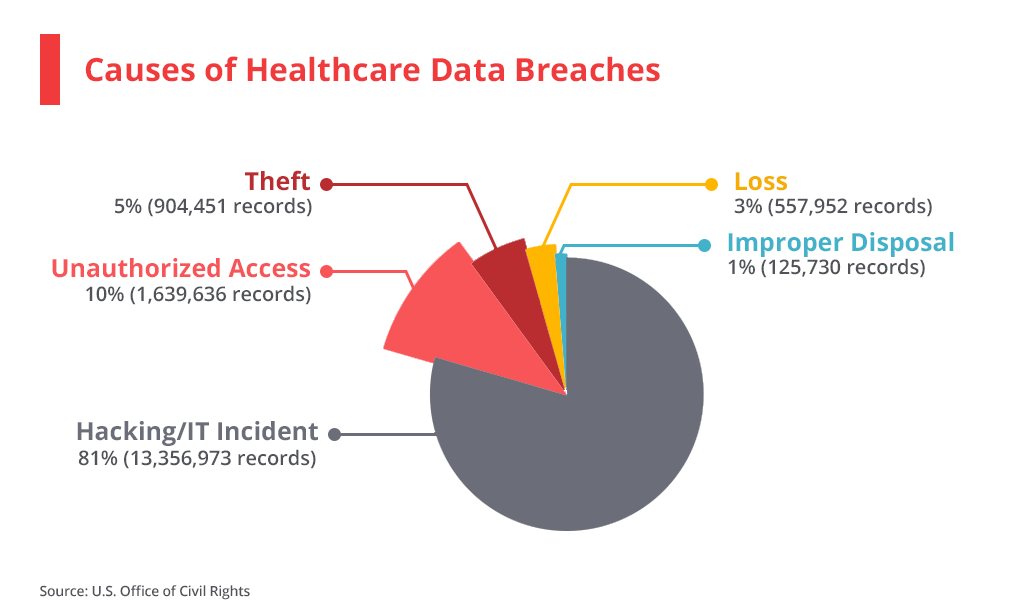
This situation in the medical industry can’t last forever and effective solutions have to be implemented and healthcare blockchain technology is one of the solutions that can drive change.
Blockchain is one of the technologies disrupting the medical industry. Not only does it provide enhanced security to sensitive medical data, but it also implements many other improvements for medical institutions:
- eliminate the risk of medication forgery
- increase the performance of clinical testing
- and make medication transportation tracking more effective
So, in our post, we are going to describe all these points in detail.
Stanford issued a premier program on emerging technology and medicine named “Medicine X.” One of their releases stated that blockchain is a “set of pipes allowing information to go from point A to point B in a manner that you trust.”
They stated that blockchain is providing:
- incentives (tokens as a payment method or as a tool of sharing your information with the other players in medicine communities);
- identity (possibility to show the necessary things and hide everything else);
- trust (the transaction is performed only in case it’s authorized).
To be aware how healthcare and blockchain is integrated, 1500 companies were interviewed to learn more about their business models. These were virtual healthcare, P2P micro-insurance, connecting patient and communities, mobile patient data platforms, healthcare business platforms, patient data agencies, etc.). The wish to transfer data safely and quickly is uniting all of them.
Blockchain’s power in data transmission is reflected in the following issues:
- It makes data sharing less time-consuming (which is not the case when a patient goes to a doctor and must talk about their background every time—-once recorded, data could be discovered easily).
- It gives the possibility both for doctors and patients to follow common protocols.
To wind up with a blockchain profile, we can name two basic challenges you encounter while dealing with blockchain technology: who really owns the data and what it’s possible to do with it.
Nowadays, personal information exists in many places (online forms, doctors’ records, hosting companies, etc.) and no blockchain startup matters without personal ‘ME’ part involved (when the end-user or a company is sharing information).
Blockchain is a horizontal innovation because it can be applied to many industries and fields. Let’s explore how every advantage of blockchain technology contributes to medicine:
- Decentralization (no one owns all the data globally as an authority, but every stakeholder has access to any data from any place)
- Improved data security and privacy (as an example, cryptography keys make identity protection possible)
- Health data ownership (Cryptography protocols and smart contacts are solutions for knowing for whom and in which way patient’s data is available)
- Availability (robustness)—in blockchain, healthcare applications loss, security attacks, and data corruption do not take place
- Transparency
- Data verifiability (to obtain relevant records is extremely important for insurance claim process or pharmaceutical supply chain management)
Statistics announced by the Director of Centre for Biomedical Informatics (CBMI) prove that the records of one in five patients suffer from inaccurate matching (data privacy) or not available at all in EHR (electronic health records). This leads to difficulties with data verifiability and transparency. This “one in five” rate makes blockchain advantages even more valuable.
The enumerated pros are implied in certain fields in a variety of forms. Blockchain is applied in the management of electronic patients’ records, drugs logistics, clinical studies, and remote personalized care.
Smart contracts, permissioned blockchain, and off-chain storage are examples of certain solutions in these fields.
As discussed above, patient-related data storage is one of the most important aspects of healthcare which requires thorough protection.
Medics put privacy to significant risks when transferring medical cards information via social networks or other insecure channels.
Obviously, stealing of such data can cause its illegal publication without the patient’s permission and subsequent blackmailing.
Blockchain Solution
In 2017, the Digital Treasury Corporation, in cooperation with the Taipei Medical University, introduced phrOS, a blockchain-based operating system for personal healthcare records.
phrOS places patient information on blockchain to achieve transparency between various medical organizations. It also increases information security via the Decentralized Ledger Technology (DLT).
Both doctors and patients have access to this data through a mobile application. Patients can input data about their current health condition, and doctors can monitor it in real time.
Another blockchain healthcare solution is MyClinic.com. This service was developed by Medicalchain, a UK startup, together with the Groves Medical Group, a private clinic chain.
Like phrOS, this blockchain software aims to provide a transparent and secure way to transfer electronic healthcare records (EHRs) between patients and doctors.
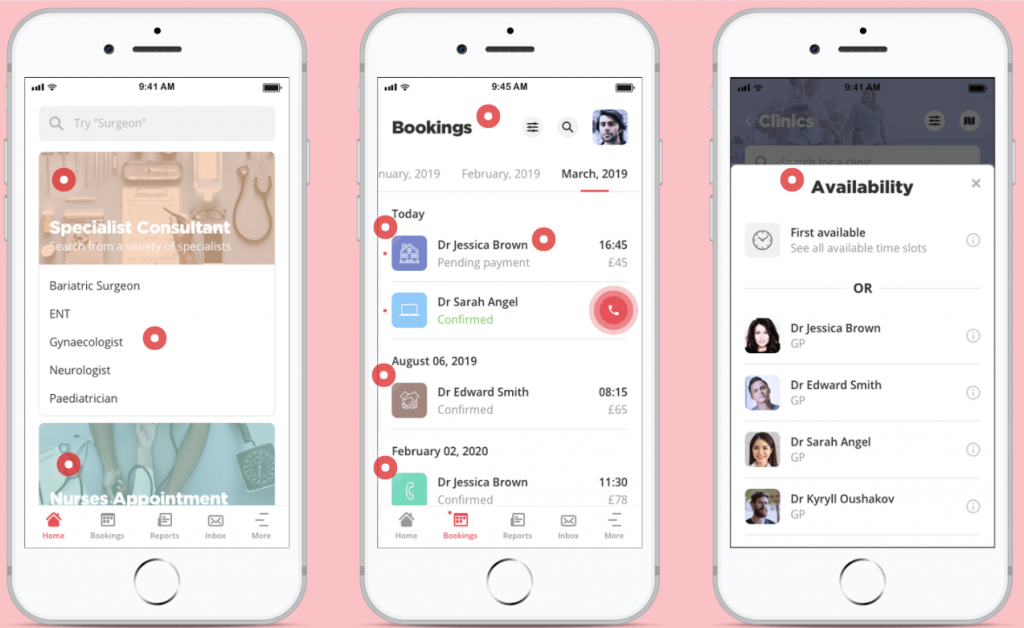
With this solution, patients can receive a consultation with a real doctor remotely. The fee is reduced because there is no need to pay for transportation and rent. It is paid directly to the specialist without any third parties.
Innovecs can integrate blockchain into your existing healthcare software or develop a solution from the ground up. For one institution, our engineers helped create a blockchain healthcare product for verifying and storing medical data changes.
Medications are faked as often as any other type of production. However, as opposed to other products, the forged remedy can not only show no effect whatsoever but also significantly harm the patient’s health.
It is estimated that 1 million people die because of counterfeit medications. The World Health Organization has reported that approximately 10% of all medicine in the world is forged. It relates mostly to locations such as North America, Asia, and Europe.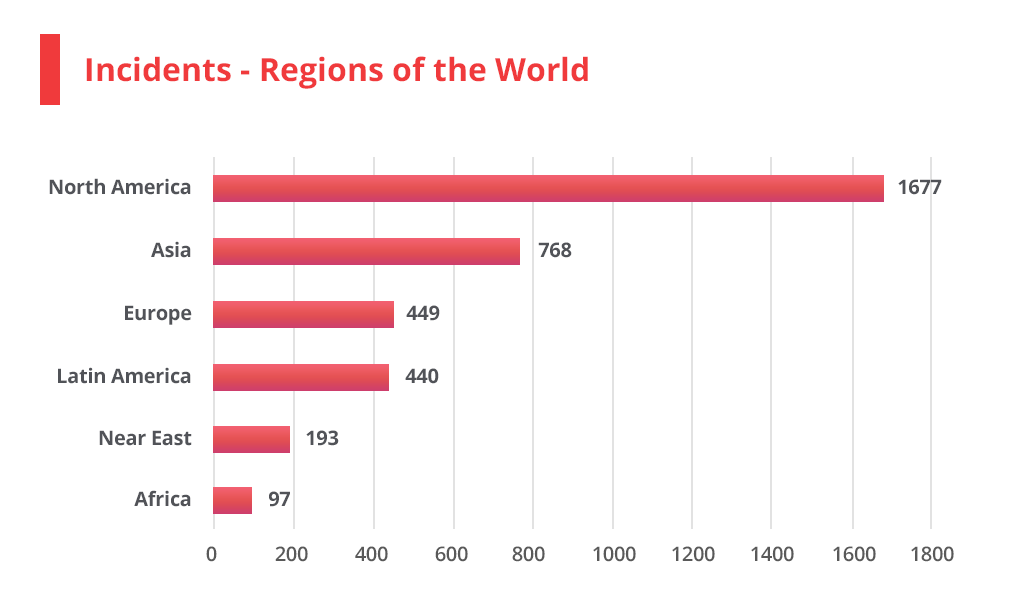
The Organization for Economic Cooperation and Development (OECD) has estimated that the counterfeit medical sector costs more than $200 billion yearly. Compare this figure with the illegal drug trade, which is worth near $250 billion.
Medical blockchain technology can help reduce risks caused by fake remedy, and consequently, save lots of people’s lives.
Blockchain Solution
Each transaction written into a certain block is recorded and cannot be changed in any way. In such a manner, pharmacists are able to retrace each stage of a product’s delivery – from the manufacturer’s storage to end buyer.
Blockchains with both public and private access can be used in that case. The private type of access is more preferable as it simply does not let in any cheats forging the medication.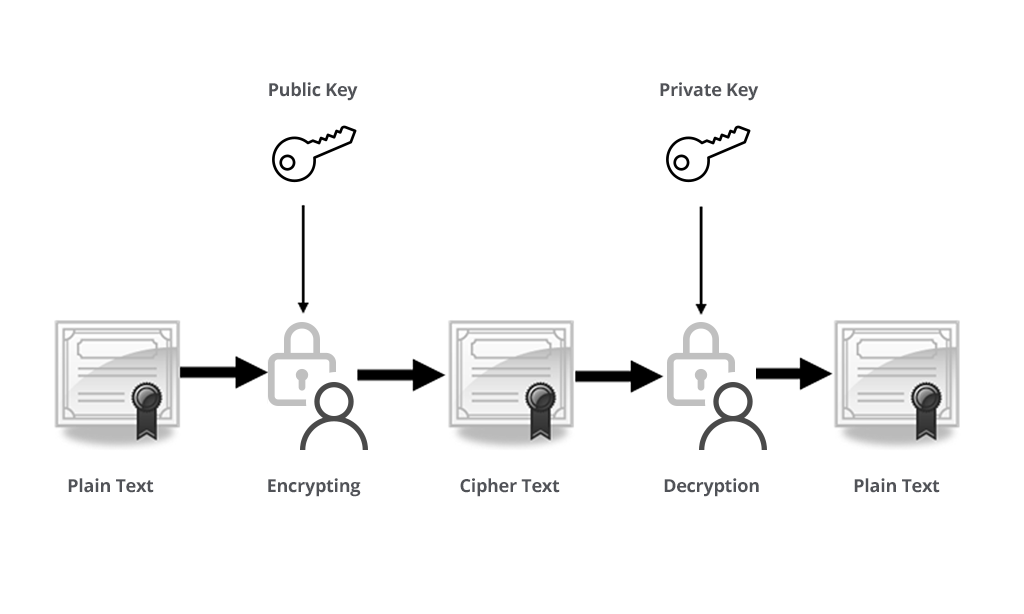
Why is blockchain more beneficial for the solution of that problem as opposed to conventional means?
The blockchain technology, in turn, makes it practically impossible to change information stored in its sections. It can, additionally, help the pharmacists identify on which stage the violation was made in the case of detecting a low-quality product.
Recently, SAP, a German technology company, has introduced a blockchain healthcare software for eliminating the counterfeit drugs.
According to SAP’s new blockchain-based product, pharmaceutical producers have to indicate the data about the medicine on the ledger. They have to direct XML messages through the SAP environment which will then make these messages emerge on blockchain.
The data on blockchain will be kept in SAP’s cloud and will be accessible for all supply chain participants. Thus, no third parties could access, copy, or modify it.
Another blockchain software is AsliMedicine. This solution aims to trace the medication through the entire healthcare chain, ensure its integrity, and identify fakes.
This software best suits medicine manufactures. Blockchain-based AsliMedicine provides them with a unique coding model for each drug at the item level. Any data can be input: quantity, location, manufacturer name, asset ID, etc. This helps trace medicine for detecting counterfeit units.
Clinical testing is conducted in order to identify the effectiveness of certain medication as well as its side effects. The tests usually can take up to a few years and require enormous investments.
A typical clinical trial consists of three phases. The first one entails testing medications on a small group of people; the second one — on a larger group; and on the last phase, the medications are distributed across the biggest group. The final step is the new drug application (NDA) approval. Only a small percentage of drugs pass all these steps.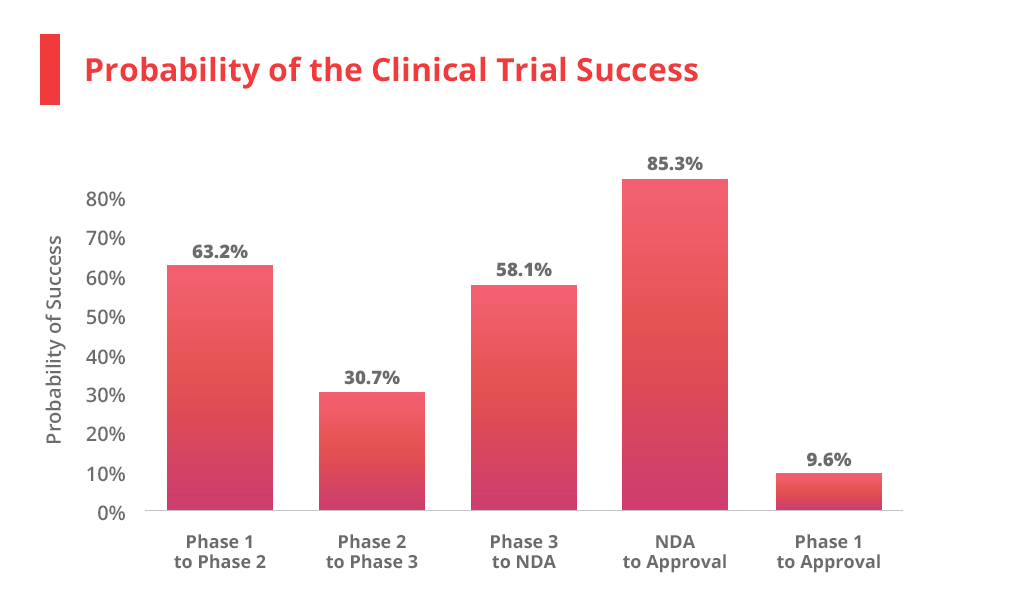
Considering such a low percentage and the amount of money involved in the entire process, it is no wonder that some dishonest manufacturers can forge data. This is made to decrease the required period of time and a dedicated budget. In some cases, such affairs can result in incorrect medical notes as to the patient’s condition after the application of a certain remedy.
Thus, potential buyers do not suspect to what catastrophic side effects the application of that remedy can lead. They can cause deterioration in patients’ condition and even immediate hospitalization and fatal outcome.
Blockchain Solution
The blockchain technology in healthcare can reinforce the genuineness of any document that confirms the result of tested medication’s application.
In order to fill the healthcare chain with new data, a user must await the confirmation of data put down in previous sections (i.e. computer networks that store previously written down data concerning certain medication).
As a result, the consumers’ level of trust towards the companies with blockchain technology in healthcare increases and they get an ultimate advantage over competitors.
Recently, IBM Canada and Boehringer Ingelheim have announced a partnership to test how blockchain healthcare software can facilitate clinical trials.
Their goal is to test the decentralized framework for information integrity, transparency, provenance, and patient empowerment. They also plan to implement automation into the process and, consequently, see whether the quality of the trials improves. This is the first time ever blockchain in healthcare is used in Canada.
BloqCube is a ready-made blockchain software that aims to speed up the clinical research and provide complete data integrity. The system allows integrating common clinical trial management systems (CTMS) with payment and accounting platforms on the basis of blockchain to receive a full-scale solution for medical institutions and clinical trial investors.
As blockchain gives the possibility of sharing data privately, safely, quickly, and in a decentralized manner, many companies have already applied blockchain solutions. Let’s check out several examples.
- BirstIQ from Colorado developed a platform for healthcare companies to manage their data safely. But the most powerful feature is that up-to-date healthcare activity information is stored there, which helps to find any abuse usage of opioids or other drugs needed special prescription.
- Factom’s solution in Texas involved adding a chip to physical papers. Information about the patient was stored on this chip, which was available only for authorized usage. They gained a grant from the US Department of Homeland Security.
- Medicalchain from English introduced a telehealth platform where patients can get doctors’ consultations and pay for them with “MedTokens.”
- Simplyvital Health presented a platform used by different medical establishments in Massachusetts to coordinate their medical care for one person.
Innovecs launched a blockchain R&D center in Kyiv in 2015. And, it’s still working, establishing mutual collaboration between Western blockchain leaders and Ukrainian experts to integrate the blockchain technology into the economy and healthcare industry.
After reading these cases, we can conclude that blockchain contributes to secured transparency, drug abuse prevention, integrating physical paper documents with big data, and token payments introduction on telehealth platforms.
All blockchains in healthcare must incorporate technological solutions for three vital elements:
- scalability,
- data privacy,
- and access security
A distributed blockchain that contains health records, images or documents, will have data storage implications as well as data throughput limitations.
All members of the distributed network of the healthcare chain possess copies of all blockchain medical records. It is not practical from a data storage perspective.
In order for healthcare software to benefit from blockchain, it would need to work as an access-control manager for health data and records. The user would have access to their data as well as control over how this data will be shared.
Access permissions by the user will be assigned to designate who can access and write data on their blockchain. They would be able to view and audit a log of who accessed the blockchain, including the time and type of data. It will be possible to revoke the access rights to any individual who has a unique identifier using the same dashboard.
Among the advantages blockchain provides medical researchers are:
- creation of a single storage location for all health information,
- tracking personal data in real-time
- and the ability to set data access permissions at a granular level
Health researchers need broad and complete data sets so they can better understand diseases, speed up biomedical discoveries, accelerate the development of drugs and provide customized individual treatment plans based on patient genetics, environment, and lifecycle.
The scope of upcoming 2020 events, such as a series of blockchain Expos in London (March), Amsterdam (July), and North America (November) proves that this technology is growing in. Around 26000 attendees and 500+ speakers are expected. Innovecs is also planning to expand its expertise and collaboration on blockchain applications in healthcare development and consulting.
So, blockchain definitely has a place in medical software development. Innovecs can act as a reliable partner in implementing this technology into your system or building a solution from scratch to meet your specific requirements.




